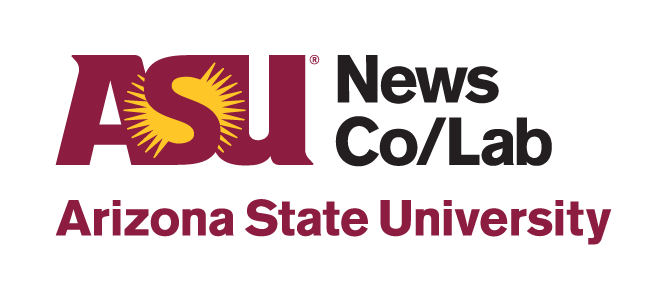Macon, Georgia’s daily paper is reaching the community in deeper ways through dedicated engagement reporting and news literacy education.
In the heart of Georgia is Macon, home of the The (Macon) Telegraph, serving a metro-area population of about 230,000. It’s a small media market, but an invested community. And The Telegraph has dedicated itself to treating its community members as collaborators, people whose opinions, questions and cares matter.
In 2018, the News Co/Lab started working with The Telegraph and Mercer University’s Center for Collaborative Journalism (CCJ) to enhance the community’s news fluency, with transparency and engagement as major early steps. As the first step of our partnership, The Telegraph convened a community working group to identify how to better connect with the paper’s audience. The working group — including newsroom leaders, journalism educators, reporters and a library science specialist — realized the people in the newsroom needed to be more open about who they are, what they do, and why they do it.
Working with the results of community surveys, we helped design and launch the following experiments, among others, in community journalism and radical transparency using proven best practices.
“The [News Co/Lab] program has been nothing short of transformational for the newsroom. … In addition to your efforts around transparency, your enabling The Telegraph to host Samantha Max, our Report for America corps member, has been of enormous benefit to the newsroom and, more importantly, to our community.”
— Tim Regan-Porter, McClatchy South Region editor
Reporting on the community’s health, for the community’s health
Community engagement is the cornerstone of Samantha Max’s reporting job. And there’s good reason for it. She’s filling an often-overlooked coverage issues in middle Georgia — issues crucial to the health of the community.
The Northwestern graduate joined The Telegraph in summer 2018 as a Report for America corps member. As part of our partnership with the Macon paper, the News Co/Lab sponsored her community-driven health reporter position.
In her role, Max has been implementing transparency and engagement practices with great success. Providing her contact and social media information in her reporter bio — a basic transparency element — has generated a steady stream of meaningful community interaction and story leads. Max cites that the ideas for about a quarter of her stories, including five of her top 15 most-read articles, have come from readers. She also started a steadily growing Facebook group related to health in which she shares her stories and other health-related stories, poses questions and moderates discussion.
Max has also been a key piece of the Macon Food Story, a year-long collaborative project that explores the region’s food history and culture. The community health reporter has been examining health and access questions, like how a grocery store closure created a food desert in midtown Macon. “Food insecurity, food deserts and health outcomes are growing concerns in central Georgia,” writes CCJ reporter Sonya Green. “And reporters like Max are working directly with the community to discover what stories are important to them, involving them in the reporting process.”
Training the trainers
Libraries and librarians provide the essential tools to help communities meet their information needs — both physical and digital. And though news organizations face historically low levels of public trust, libraries continue to be viewed as highly trustworthy information sources.
That’s why the News Co/Lab sponsored a “train-the-trainer” news literacy workshop for Middle Georgia Public Libraries, in conjunction with The Telegraph, CCJ and the Center for News Literacy at Stony Brook University.
In our community surveys, 52 percent of Macon respondents were fooled by a local fake headline. Librarians in the workshop agreed: Their patrons — young and old — need help locating and using credible news and information sources. The day-long session used CNL’s internationally renowned news literacy training to learn more about verification, balance and bias, identifying journalist opinion and evaluating sources. The participants then developed a news fluency lesson plan for their patrons and colleagues to help their communities make better sense of the news. We hope to collect information about what patrons want to know about the news and how the training changed their perceptions of the news.
Read more about the program
- Why community engagement is at the heart of this reporter’s job
- Telling the community’s story through food
- Macon library training fosters community news literacy
- Behind the Byline: Why our health reporter became a journalist
- You might not be as good at spotting fake news as you think
- Meet the working group in Macon
Wondering how we can work together? Learn more about our process to help journalism organizations embed transparency and engagement in ways that increase local news fluency.
